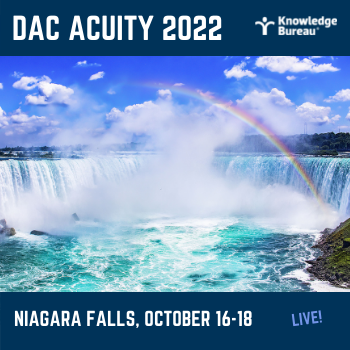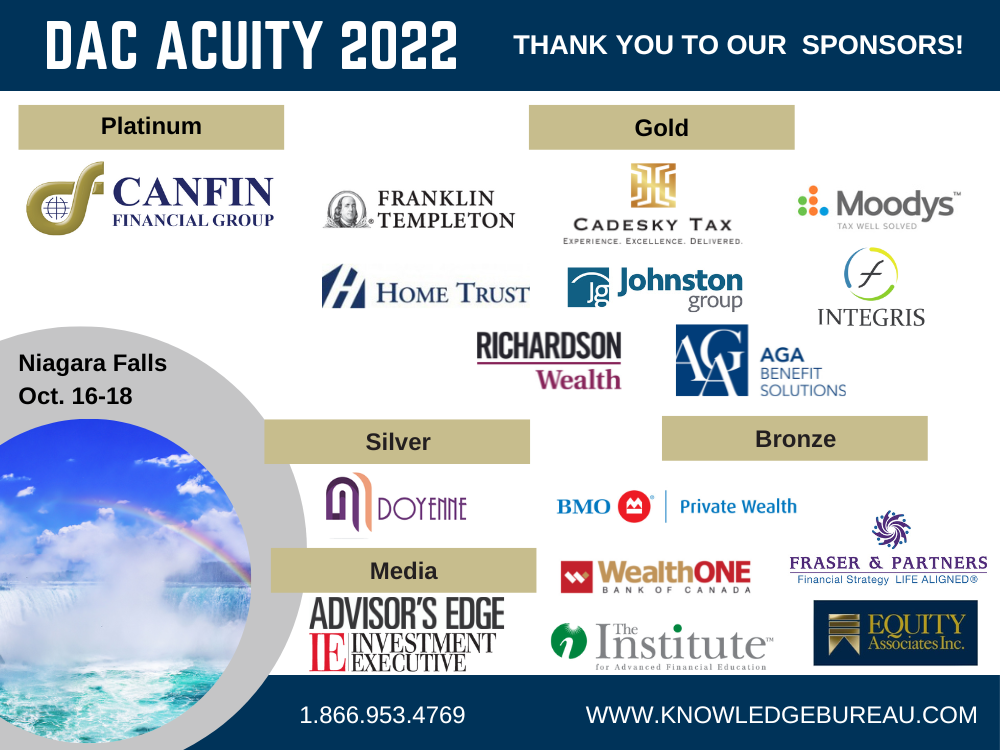DAC Acuity 2022: Ethical Dilemmas, Breaking Down the Duties of Care

Can ethical behaviour be regulated? Can we eliminate all of the “Bad Apples’ with regulation or does it take more? Is it possible that ethical behaviour is a byproduct of a “culture of care”? In other words, when it comes from the heart, is ethical behaviour a standard on its own? Organizations must be sure and so, they must back up a culture of care with strategy and processes to ensure consistency. CEO of CANFIN, Tony Mahabir who will share his inspiring insights on how to accomplish this against the backdrop of increasingly complex and expensive regulation.
The economics of regulation maybe a barrier to a positive result for clients. Should ethical behavior be regulated and at what cost? Regulations add more layers of complexity and fees, making it difficult to always get the right results. Those that are most vulnerable may not be able to afford the high fees that must be charged to compensate for the cost of regulation, possibly driving them to the wrong providers.
What is the solution? You must demonstrate that you served every client in an ethical environment using a strict code of standards. Find out more about ow to develop those standards in this importance session. Quite simply, it is always the right time to do the right things …. and, It is never the right time to do the wrong thing!
In a 2013 study on trust, investors indicated that to earn their trust, the top three attributes of a financial professional or investment manager should be that it:
- has transparent and open business practices,
(2) takes responsible actions to address an issue or crisis, and
(3) has ethical business practices.
Tony Mahabir, Chairman and CEO, CANFIN Financial Group of Companies- is a Professor of Finance & Management Studies within the Faculty of Business at Humber Institute of Technology and Advanced Learning for The Bachelor of Commerce & Finance degree program.
Concurrently, he is the Chairman and CEO of Canfin Financial Group – to offer professional wealth management advisory services to businesses, professionals and individuals across Canada.
Globally, he is very active in promoting financial literacy and professional conduct through his generous contribution of time to CIFA: a non-profit foundation and non-governmental organization with general consultative status with the Social and Economic Counsel (ECOSOC) of the United Nations where he serves as President.
Here at home in Canada, he is the Chairperson for The Canadian Institute of Financial Planning – a virtual learning institute offering traditional and web-based financial education for the financial services industry.
In the past, he has been a director of: the U.S. Based Financial Planning Association and on the Board of Governors for Humber College Institute of Technology & Advanced Learning.
Over the last thirty years, Tony has shared his insights on strategy, cultural diversity, standards of care and cross-boarderfinancial planning for multinational clients. Tony holds a Masters of Business Administration degree, is a Certified Management Consultant, Certified Financial Planner, Registered Retirement Consultant, Chartered Investment Manager and Real Wealth Manager.
He has received the FP Canada Fellow distinction, which formally recognizes individuals who have helped advanced the financial planning profession.


The Agenda. Of course, you don’t just come to DAC for the networking, there is the serious work of understanding the trends that lead to sound decision-making with your clients in the current environment. Here are some highlights from this year’s educational agenda.
On the Full Agenda:
- Velocity: The Speed of Change and Its Effects on Your Work
- Ethical Behaviors: Breaking Down the Duties of Care
- The Velocity of Money: The Rate of Spending and Its Impact on Investors
- Coming Home: The Tax Quagmire for Ex-Pats
- Team Building: Lunch at the Improv
- New Money Demographics: Integrating Digital Currency in Investment Conversations
- Hedging Risk: How to Manage Volatility to an Investor’s Advantage
- Investor Behavior: Managing Fear of Missing Out
- Truth & Reconciliation
- Rethinking Wealth Advisor Services
- Help Wanted: Transformative Leadership for Canada
- The Speed of Tax Change: What it Means for You and Your Clients
- New Trends in Group Benefits
- How to Get More Distance from Your Pension Plan
- Planning for Disability: A Multi-Advisory Case Study
- Doing Good: Why Making a Social Impact Matters to Your Next Client
- Velocity: The Need for Speed to Succeed
Learn more about the speakers who will be delivering these informative and inspiring sessions as we feature them in upcoming editions of Knowledge Bureau Report.
Visit the DAC page often for updates to this comprehensive agenda!